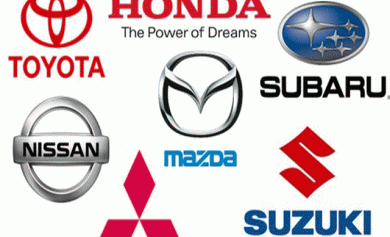
The Executive Secretary of the Nigerian Automotive Manufacturers Association (NAMA), Chief Arthur Maduekwe, has stated that patronage was key to the survival of the sector.
He made this submission when the association paid a visit to the Minister of State for Trade and Investment,Dr.Samuel Ortum, in his office in Abuja weekend to solicit his assistance.
The association said that the industry would be pulled back from the brink of collapse if the government of President Goodluck Jonathan implements its own policy of leading the way in buying locally made vehicles in tandem with an existing law – Gazette No 24 of 1994, which compels all tiers of government to source vehicles locally, except where not available.
It further submitted that the industry expected a stricter adherence to the policy which required their ministries, departments and agencies of government to source all their vehicles locally, “without resorting, as has been the case in the past, to massive importation.”
According to Maduekwe: “Before now, even up till a few months ago, what was happening was that ministries and agencies of government were importing all kinds of vehicles which the auto plants in Nigeria have the capacity for, even from neighbouring African countries like Kenya and South Africa.
“When patronage of locally made plants was not there investors stayed away.
The impact of the collapse of the auto plants was felt by the economy generally, because many linkage sectors, like the petro-chemical, textile, steel, rubber, electronic and others, are represented in the auto industry and there was nothing to supply the dormant assembly lines.”
They recalled that it was the lack of patronage and resort to massive importation which led to the decline in the fortunes of the plants of Volkswagen of Nigeria Limited and gradually resulted to its grounding.
Government had between 1970s and 1980s set up Peugeot Automobile Nigeria Limited (PAN), Kaduna; VWON; Steyr Nigeria Limited, Bauchi; National Truck Manufacturers (NTM), Kano; Leyland in Ibadan; and truck/bus-making Anambra Motor Manufacturing Company Limited (ANAMMCO), Emene-Enugu.
But, even before the privatisation of 2006, most of them were either dead or dying and regrettably, their post-privatisation days are being threatened by the same issues that undermined the sector in the late 1990s and early 2000s.
He, therefore argued that for the present generation of auto plants to survive, government-driven patronage was a key factor.
“If there is low capacity utilisation as a result of lack of patronage, it will lead to the death of the auto manufacturing plants,”he said.
Responding, the Minister who acknowledged the enormous challenges confronting the sector, said : “We are at a time of transforming Nigeria from what it used to be to a different level.I think that government policies can be turned into actionable things that people can feel its impact.
“We are going to undertake an on -the – spot assessment tour of some automotive factories to ascertain the situation on ground within the next three weeks and come back and organise a workshop that will look into the issues and come out with a position and then make a memo to the federal government on the issues that have been raised.”
Ortum also assured that the issue of import duty differential earlier raised by the association to create a level playing ground would be looked into.

